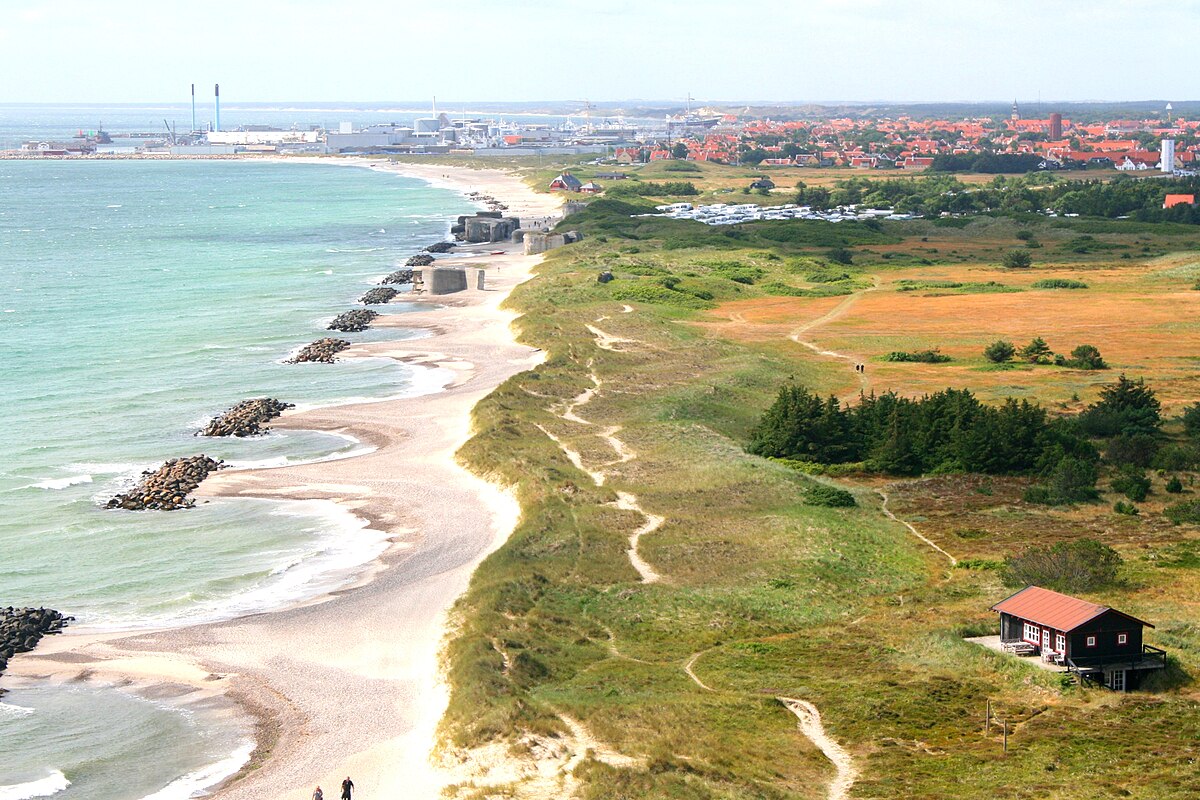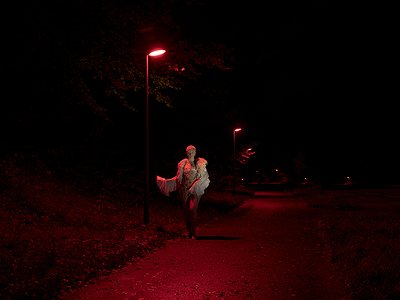Part 1
Name: Aria Leth Schütze aka Alto Aria
Nationality: Danish
Occupation: Songwriter, vocalist, composer, sound artist
Current release: Alto Aria's Limerence is out via Rhizome.
Recommendations on the topic of sound: I’ve made a little playlist with music I love called </3, which you can check out, if you want. I’ll keep on updating it with new music I find in the future.
Apart from that I want to mention three albums I’m listening to at the moment:
1) íra by ill, this is a beautiful album weaving acoustic and electronic, song and sound, with feld recordings and vocals at its core.
2) Memory by ilinx, this is another way of weaving the electronic and acoustic, but in a context of choir music, ilinx is an interesting trio.
3) Fountain by Lyra Pramuk. This is a beautiful album I keep on revisiting.
Regarding literature, I love finding new inspiration in books. I’ve just finished the book At Performe Transkønnet Vrede by Danish writer Gry Stokkendahl Dalgas and I’m just about to begin Detransition, Baby by Torrey Peters. One of my all time favourite books is Mark Fisher’s Capitalist Realism - Is There No Alternative? And I keep on coming back to Ursula K. Le Guin’s The Carrier Bag Theory of Fiction.
Lastly regarding websites, I keep on finding new beautiful insights at my friend Gabriel René Franjou’s website No Bliss. They will soon release a book, which I’m looking very much forward to!
If you enjoyed this Alto Aria interview and would like to find out more about their music, visit them on Instagram, Facebook, and Soundcloud.
Do you think that some of your earliest musical experiences planted a seed for your interest in sound?
I think I’ve always been fascinated by the beauty of sound.
One of the frst experiences with sound I can remember was when my sister and I were sitting at my grandparents' piano. My sister was playing beautiful melodies and I was strumming the piano, turning it into a percussive chaos of sound. I remember feeling really happy and engaged by this wall of sound that we were able to create.
This way of approaching the piano made me more at ease than piano lessons would later do.
Do you experience strong emotional responses towards certain sounds? If so, what kind of sounds are these and do you have an explanation about the reasons for these responses?
Right now I’m experiencing a strong emotional response to sounds made by the phone. It could be phone calls, voice messages, and morning alarms.
Lately, this came into my interest and awareness by listening to the beautiful album by Torus and DJ Lostboi named The Flash (Deluxe).
Here it caught my attention how much emotional value there is in these sounds. In the album you hear for example unanswered phone calls and voice messages.
We almost all have experiences with the phone, it being part of our everyday life - when we call a friend, when we listen to voice messages from our family, and when we have to wake up in the morning.
Are there places, spaces, or everyday devices which intrigue you by the way they sound? Which are these?
If I had to mention only one place I would have to say Northern Jutland, Denmark. I’m intrigued by this certain place where my family has a holiday home. More specifcally, I’m drawn towards the coastline there, the sound of the wind, the cold air, the salty water and the dunes. The sanderlings running beside the waves and the seagulls touching the sky.
This place has a very strong emotional reaction in me, and I think it is because it is one of the places I know the best. My family bought the home when I was born in 1994, and I’ve been there many times a year ever since.
Northern Jutland (Kattegat coast off Skagen) Image by Okin
But apart from that place, I’m drawn towards almost all sounds of my everyday life, very inspired by Ursula K. Le Guin and her text The Carrier Bag Theory of Fiction, where she puts into words how we have long paid attention to the knife but now she wants to focus on the carrier bag, everyday life, and our surroundings.
The starting point for making my music are the surroundings of my life. The electric cooker which I boil water for my morning cofee, the vibrator I use for my pleasure, my friends having a conversation at a bar, the hectic traffic in Berlin in the afternoon when I go for walks or the kids playing in the schoolyard outside of my window.
For some, music equals sound, to others they are two distinct things. What is the relation between music and sound for you? Are there rules to working with sound, similar to working with harmony, for example?
For me, the relation between music and sound is very flexible and fluid. I can find music in sound, and sound in music. It very much depends on my mood, the way I’m listening to a specifc sound or a piece of music.
But in relation to my work, I’ll almost always begin with listening to and being intrigued by a sound. I don’t think I have ever made a piece of music taking the point of departure with harmony, apart from when it was happening as a school project, but maybe it will one day, we’ll see.
When I make my music, I’ll be interested in a specific sound I’ve recorded lately or words, sentences or themes I find in literature, movies, online, offline. An example of how I work with sound as my point of departure, could be my first album Tides which was released in 2020 through the label Rhizome - a label I created together with Mads Krue Bugge who goes under the moniker Skarv.
Here I was inspired by exactly the coastline of Northern Jutland, as I mentioned earlier, and was recording a lot of sounds from that place as a starting point. Then I began to think about the tides as a concept I could learn from personally. Having the fexibility to move between highs and lows like water can do.
In the end it became an album about the transformation and transition in my own life taking point of departure with tides, and this specifc place.
What were your very frst active steps in terms of working with sound and how would you rate the gains made through experience?
I think my frst active steps in terms of working with sound were when I began working in a DAW, and that was around the time when I finished highschool in 2013. It was when I had the chance to collect all these sounds I recorded and found in my surroundings, that it all began to come together for me. By being able to organise, arrange, sing with and carry these sounds, I found the joy of making music.
I have always played music - piano, guitar, singing, but I would not consider myself a “good” musician, I mostly see myself as a collector or arranger of sound.
For your own creativity, what were some of the most important things you learned from teachers/tutorials, other sound artists, or personal experience?
When I studied music performance at the Rhythmic Music Conservatory of Copenhagen, I had one teacher who was very important for my musical practice.
His name is Niels Lyhne Løkkegaard. What I learned from him and admire him for was that he was able to let this interest in sound grow in me. He understood that this was my point of departure and made me work from there, always curious.
For me, this was a rare experience, because many of the courses I could attend would be focusing on harmony, melody, and so on. It was inspiring for me to have a class where we discussed sound, made our own instruments, and imagined sound.
How and for what reasons has your music set-up evolved over the years and what are currently some of the most important pieces of gear and software for you?
Here I have to say that my set-up is very minimal actually. I make music from my room in Berlin using a studio microphone, the software program Logic and a zoom recorder.
Apart from that I think friends and other musicians might be and have especially become one of my biggest sources in terms of inspiration and sound generating. I would often ask friends to play an improvisation for me and then I’ll reuse that material for ages, chopping it up in diferent ways.
Apart from that I think that my voice is my most used sound source. I often make improvisations with voice which I would later use for creating a piece of music. I will be interested in what sounds I can create but also what words come to me in these improvisations.
The focus of what I’m interested in seems to change throughout time though. Right now I’m very inspired by the textures in the voice when whispering, this is something I find intriguing in albums such as MAGDALENE by FKA twigs.







